Sam Peckinpah’s swansong: The Osterman Weekend (1983)
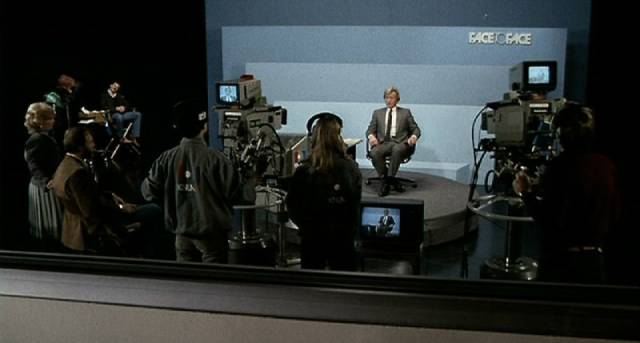
Having recently watched Imprint’s new edition of Sam Peckinpah’s Cross of Iron (1977), I managed to find a (rather overpriced) copy of their out-of-print limited edition of The Osterman Weekend (1983), his final movie. When he took this job-for-hire, it had been five years since his last feature. His problems with alcohol and drugs had made the production of Convoy (1978) so chaotic that he was no longer considered even marginally bankable; in fact he had been reduced to directing second unit on Jinxed! (1982), one of his former mentor Don Siegel’s worst movies.
Robert Ludlum’s second novel had been floating around Hollywood for years when producing partners Peter S. Davis and William N. Panzer acquired the rights in hopes of rising to the A-list (they would achieve their biggest success a few tears later when they launched a long-running franchise with Highlander [1986]) and saw hiring Peckinpah as a risk worth taking, although he posed some problems when it came to raising financing. But with the director in place, it was possible for Davis and Panzer to sign an impressive cast of notable actors who were willing to take pay cuts in order to work with the legendary filmmaker.
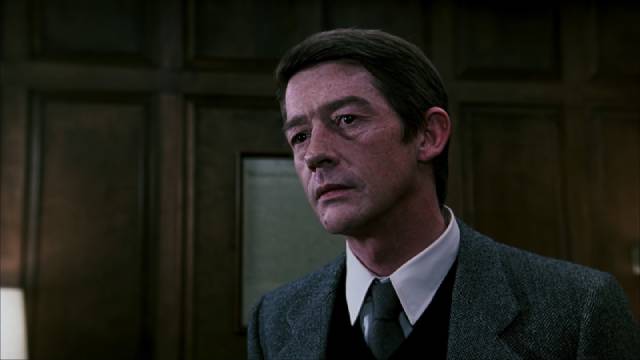
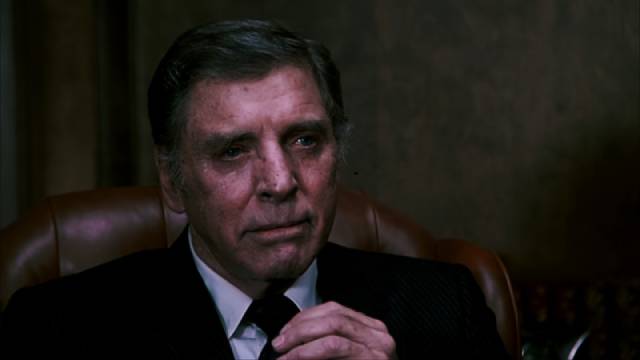
With a very tight budget and a pressing schedule, the project got underway without a fully-developed script. An attempt to adapt the novel had been made by Ian Masters, his work passed on to Scottish writer Alan Sharp, who had worked in British television in the ’60s and moved into features in the ’70s. He seemed like an appropriate choice to collaborate with Peckinpah, having written three revisionist westerns – Peter Fonda’s The Hired Hand (1971), Robert Aldrich’s Ulzana’s Raid (1972) and Ted Kotcheff’s Billy Two Hats (1974) – and also one of the great paranoid thrillers of the decade, Arthur Penn’s Night Moves (1975). But having delivered a first draft, he was surprised to find that the production was going ahead without further revision. This, as much as Peckinpah’s personal problems, goes a long way towards explaining the movie’s flaws.
There are visual echoes of Peckinpah’s previous work (particularly Straw Dogs [1971] in the final act, which involves a violent siege on the protagonist’s home), but they seem untethered to any dramatic significance. The plot is convoluted, but it remains stubbornly murky because we’re never given a clear understanding of the characters’ motivations, a lack of clarity which stems from the script’s first-draft shortcomings.
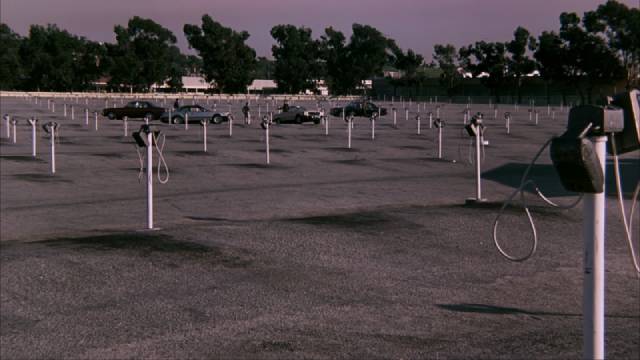
In the opening scene, the wife of CIA agent Lawrence Fassett is murdered, apparently by KGB agents. Supposedly Fassett doesn’t know that the hit was sanctioned by his boss, Agency head Maxwell Danforth, and his determination to discover those responsible has uncovered a Soviet spy ring operating in the States. He has identified three respectable men being run by a KGB handler and proposes to Danforth that he set up an operation to turn one of the three so that the Agency can infiltrate the Russian operation. Getting the go-ahead, he has to convince crusading television talk show host John Tanner to help, because Tanner is about to host an annual reunion with the three men on his estate. Distrustful of the government, Tanner initially declines, but after being shown damning surveillance footage of his friends meeting with their handler – and being promised that Danforth will be available for an on-air interview – he reluctantly agrees.
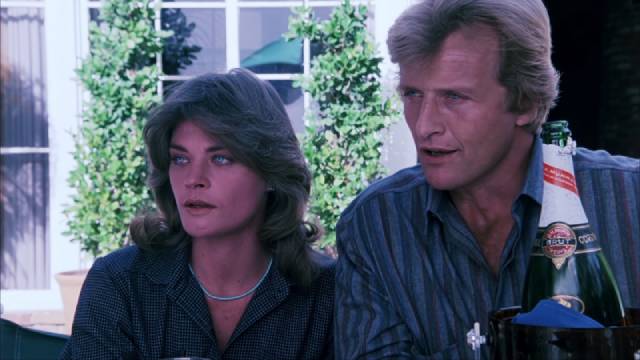
With the reunion approaching, Tanner tries to get his wife Ali and son Steve away but they are kidnapped on the way to the airport. A chase ends with the kidnapper killed by Fassett’s people and the family traumatized; Tanner is now convinced that it’s all real and he can barely conceal his hostility when his old college friends arrive – television producer Bernie Osterman, plastic surgeon Richard Tremayne and businessman Joseph Cardone, the latter two accompanied by their wives. Personal tensions undermine the gathering from the start. Ali wants to know what Tanner’s concealing from her; Tremayne’s wife Virginia, a drug addict, takes pleasure in sexual provocation; and the three men, who apparently do have a shared secret, quickly suspect that Tanner is trying to expose them…
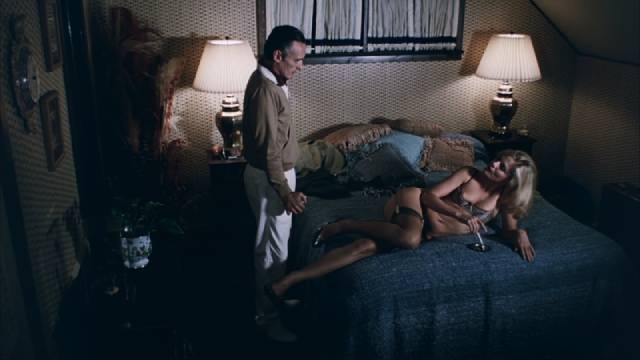
Fassett, with a command post on the estate, has installed surveillance cameras and microphones all over the house and grounds and seems to be provoking conflict among the group, ramping up tensions and, as the night progresses, sending in an armed team who begin shooting at everyone. Cardone, Tremayne and their wives attempt to escape in Tanner’s RV and are blown up; Osterman and Tanner fight each other until Osterman manages to convince Tanner that rather than being spies and traitors the three friends had simply been cheating on their taxes and sending money to off-shore accounts. They’ve all been played for reasons they don’t understand … and Fassett finally kidnaps Ali and Steve, threatening to kill them in order to get Tanner to cooperate in exposing Danforth’s role in the murder of his wife.
By this point, Fassett’s plan has become incoherent – why has he set up all these people and then murdered them when, given Tanner’s crusading/muckraking reputation, surely he could have got the talk show host’s cooperation in his campaign against Danforth. The finale, with Tanner killing Fassett on live-television during his fractious interview with Danforth is a form of suicide by proxy which also implicates Danforth in a regime of murder rooted in personal ambition rather than national interest. But getting there has involved an absurdly implausible scheme which Fassett could never have been sure would lead to the end he had in mind. (In retrospect, who was the guy who tried to kidnap Ali and Steve? If he was working for Fassett to show Tanner that the threat is real, did he know Fassett was going to kill him just to make it more convincing?)
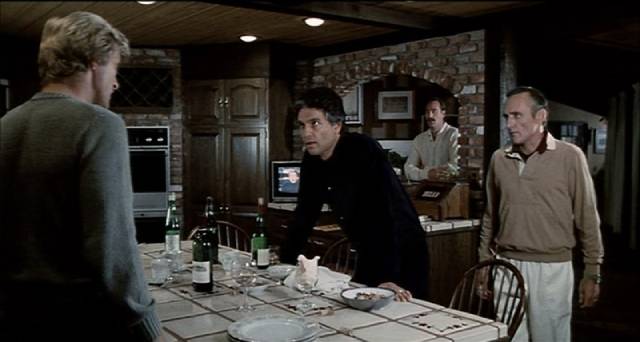
And yet, while Peckinpah struggles to make this work and ultimately fails, The Osterman Weekend holds the viewer’s interest even as it continually frustrates expectations. The inexplicable behaviour of the characters has an almost Pinter-esque absurdity which keeps you off-balance, although those visual echoes of Peckinpah’s earlier work provoke a degree of sadness at a talent so obviously wasted. But the cast is never less than watchable – Rutger Hauer may be unconvincing as Tanner, but Burt Lancaster brings all his authority as a major Hollywood star to the role of Danforth, a man who is convinced that his own interests coincide with those of his country. John Hurt has a jittery intelligence as Fassett which almost convinces you that his scheme does make sense, while Craig T. Nelson as Osterman, Dennis Hopper as Tremayne and Chris Sarandon as Cardone do well with their collective unease about having their dishonesty found out. Meg Foster as Ali, Helen Shaver as Viginia and Cassie Yates as Betty Cardone all have rather thankless roles as the wives, aggravated by gratuitous nudity, but nonetheless manage to invest their parts with some interesting touches of individuality.
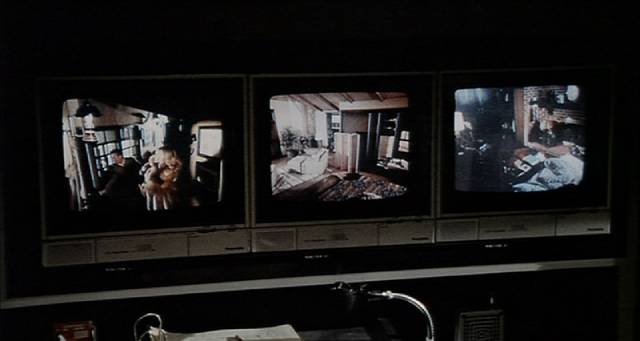
Although Davis and Panzer had thrown Peckinpah a lifeline with the project – albeit one attached to their own commercial interests – to no one’s surprise the filmmaker had an antagonistic relationship with his producers. A preview screening went very poorly and they were dissatisfied when he submitted his director’s cut. He refused to make any changes and they took the film away from him and made their own cut in an attempt to turn it into a more conventional thriller, though the material resisted their efforts and it was released to almost unanimous critical derision and poor box office. The former was virtually pro forma by this point in Peckinpah’s career, but audiences had responded fairly positively to Convoy five years earlier. At least that movie had suggested that the director had been enjoying himself to some degree. In the case of Osterman, it’s hard to believe he had any interest in what he was doing … perhaps there’s even a touch of contempt in his refusal to try and make any sense of the script. Similar problems plagued The Killer Elite (1975), although in retrospect, compared to Osterman, that movie manages to function as an impersonal genre product. As many reviewers said at the time, The Osterman Weekend simply doesn’t make sense.
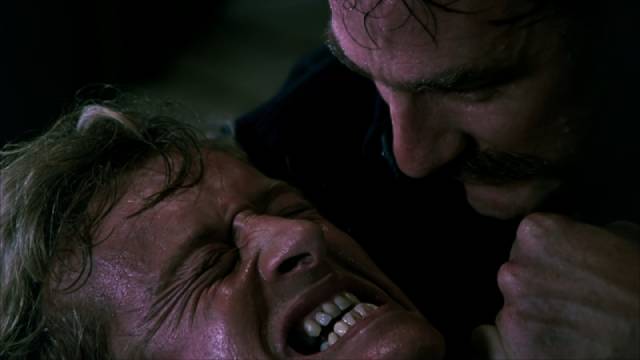
The Imprint set includes the cut Peckinpah submitted to the producers, scanned from Peckinpah’s personal copy, but while there are differences in the edit, it doesn’t actually offer anything radically different from the producers’ version. Some scenes have been moved around, others using alternate takes, but the story and its lack of coherence is much the same. (I should have kept my copy of the Anchor Bay special edition DVD, which I’d already traded in thinking it contained the same “director’s cut”; actually that disk included the longer, and much rougher, preview cut – though in a very poor quality transfer from VHS.)
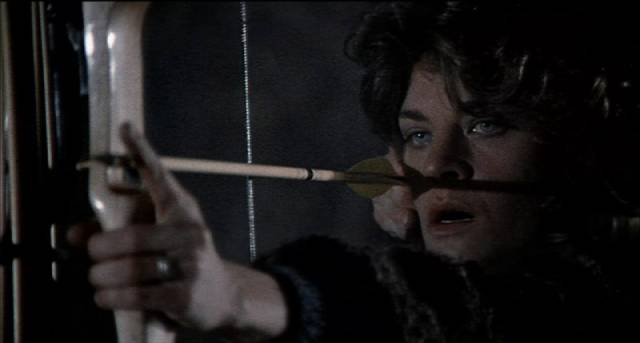
Both versions centre on the ubiquity of surveillance cameras and the aura of paranoia they produce, but there’s no attempt to make the device realistic, a problem more obvious now than it might have been back when the film was made. Rather than using fixed points of view to represent the cameras spying on the characters, the surveillance footage is shot and edited just like the rest of the movie – multiple angles, wide shots, close-ups – continuously undermining the device both narratively and thematically. From the opening in which Danforth and his aide watch the tape of Fassett and his wife engaged in sex, at the end of which he takes a shower and she’s murdered in bed, the images on the many screens within the film don’t look anything like neutrally observed reality, but rather play like a regular TV show or movie – which I guess may be a point Peckinpah was trying to make (all our lives are just entertainment now on somebody else’s screen), but it works against the viewer’s suspension of disbelief and immersion in the story, suggesting that Peckinpah simply hadn’t given the device any thought.
The first disk includes the 1.78:1 theatrical cut as well as an unrestored scan from a 1.66:1 German print (echoing Imprint’s edition of Cross of Iron), as well as a commentary by Peckinpah experts Paul Seydor, Garner Simmons, David Weddle and Nick Redman and the 78-minute documentary Alpha to Omega, both from the Anchor Bay DVD. The second disk has the director’s cut with a commentary from Mike Siegel, as well as Siegel’s Passion & Poetry episode about the film and a lengthy featurette comparing the two cuts and highlighting the differences in the editing. John Coquillon’s cinematography looks rather drab in all three transfers, unlike his work for Peckinpah on Straw Dogs, Pat Garrett & Billy the Kid (1973) and Cross of Iron.
Comments